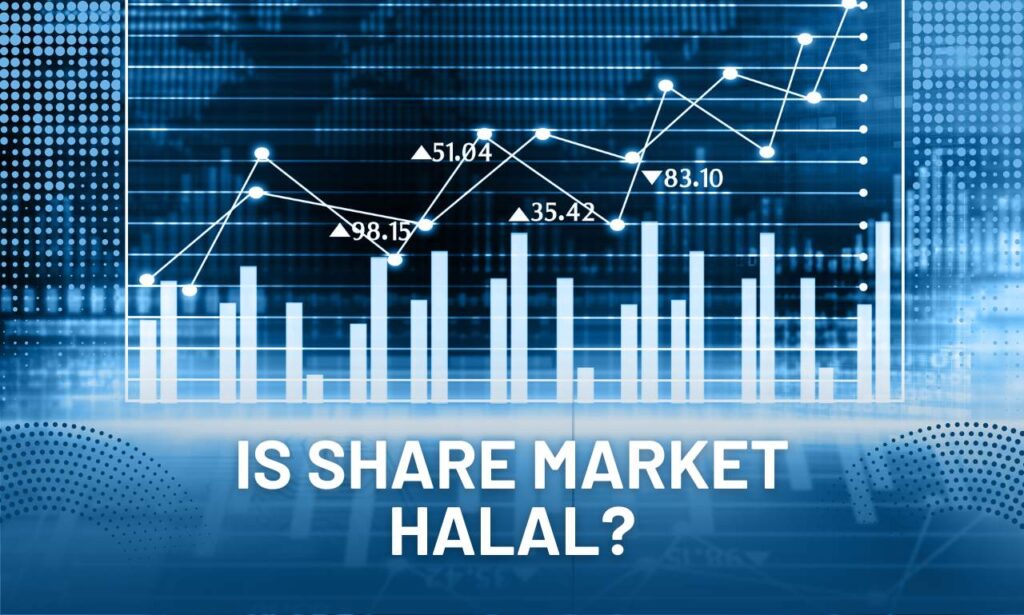In Islamic finance, the share market can be considered halal if the underlying business activities comply with Sharia law, avoiding prohibited industries like alcohol, gambling, and interest-based finance. Investments should also promote ethical and socially responsible practices.
Introduction
Navigating the complexities of the share market from an Islamic perspective requires a nuanced understanding of Sharia law. For a share market investment to be considered halal, it must align with the ethical guidelines and principles outlined in Islamic finance. This involves ensuring investments in companies whose business activities do not contradict Islamic values, such as avoiding alcohol, gambling, and usury. Halal investing promotes not only financial growth but also ethical and moral integrity.
Islamic Finance Principles
Islamic finance is governed by principles that ensure economic activities are consistent with Sharia law, emphasizing ethical, moral, and social values. These principles guide Muslims in making investments that are not only profitable but also socially responsible and ethically sound.
Prohibition of Riba (Interest)
Riba, or interest, is strictly prohibited in Islamic finance. This principle prevents the exploitation in financial transactions, ensuring fairness and equity in economic activities. Investments must not involve earning or paying interest, steering clear of conventional debt-based financing.
Prohibition of Gharar (Excessive Uncertainty)
Islamic finance prohibits gharar, or excessive uncertainty and risk in contracts and agreements. This principle ensures that all parties in a financial transaction have clear, accurate information, promoting transparency and reducing speculative practices.
Prohibition of Maysir (Gambling)
Maysir, or gambling, is forbidden, as it introduces high risk and uncertainty in financial gains. Investments should not involve speculation like gambling; instead, they should be based on careful analysis and contribute to productive economic activities.
Requirement for Asset-Backed Transactions
Transactions must be backed by tangible assets, ensuring financial activities are rooted in fundamental economic productivity. This principle prevents money from being created through financial speculation, emphasizing the importance of physical goods and services.
Ethical Investment Considerations
Islamic finance mandates investments in activities that are beneficial to society, excluding businesses involved in prohibited (haram) activities like alcohol, tobacco, and gambling. Ethical considerations also extend to promoting environmental stewardship, social justice, and corporate responsibility.
By adhering to these principles, Muslims can engage with the share market in a halal way, aligning their financial endeavours with their spiritual and ethical values.
Share Market and Halal Investing
Engaging in the share market while adhering to Islamic principles requires careful consideration, ensuring investments align with halal practices. This approach to investing emphasizes not only financial returns but also compliance with ethical and moral standards.
Shares as a Form of Ownership
Purchasing shares in a company is akin to owning a portion of that business. For the investment to be halal, the company’s operations must adhere to Islamic principles, reflecting the investor’s commitment to ethical and socially responsible practices.
Evaluation of Business Activities
Investors must scrutinize the nature of a company’s business activities to determine their compatibility with Islamic teachings.
Halal Business Operations: Businesses engaged in halal operations, such as manufacturing, technology, and healthcare, are permissible for investment, provided they contribute positively to society and do not exploit individuals or resources.
Haram Business Operations: Investments in companies involved in haram activities, such as alcohol production, gambling, and non-Islamic financial services, are strictly prohibited. Such businesses contradict Islamic values and are, therefore, unfit for Muslim investors.
Financial Screening Criteria
Islamic investing also involves financial scrutiny to ensure companies meet specific criteria.
Debt-to-Equity Ratios: Companies with high debt-to-equity ratios are often avoided, as excessive borrowing and resulting interest payments conflict with the prohibition of riba.
Interest Income Levels: Investments in companies that derive significant income from interest or have substantial interest-bearing deposits are considered non-compliant, as they involve riba, which is forbidden in Islam.
By adhering to these guidelines, Muslim investors can navigate the share market in a manner consistent with their faith, ensuring that their investments are profitable and halal.
Sharia-Compliant Stock Screening
Sharia-compliant stock screening processes have been developed to navigate the complexities of halal investing in the share market. These methodologies enable Muslim investors to identify investment opportunities that align with Islamic principles, ensuring their portfolios remain ethically and religiously appropriate.
Sharia Advisory Firms and Indexes
A cornerstone of halal investing involves leveraging Sharia advisory firms’ expertise and using Islamic indexes. These entities provide invaluable guidance and frameworks for identifying stocks that comply with Islamic finance principles. By analyzing companies and their operations, these firms help investors avoid businesses involved in prohibited activities, ensuring their investments contribute positively to society.
Criteria for Halal Stock Screening
Determining whether a stock is Sharia-compliant involves two critical screening criteria: business sector screening and financial ratio screening.
Business Sector Screening: This screening filters out companies whose primary business activities are considered haram, such as alcohol production, gambling, and conventional financial services. Only companies operating in sectors that do not violate Islamic principles pass this initial screening phase.
Financial Ratio Screening: Financial health and practices are scrutinized, focusing on debt-to-equity ratios and the proportion of income derived from interest. These financial ratio screenings ensure that companies not only engage in halal business activities but also adhere to Islamic economic principles regarding debt, interest, and ethical investment.
Through Sharia-compliant stock screening, Muslim investors can confidently participate in the share market, securing financially rewarding and spiritually fulfilling investments and aligning their financial endeavours with the core values of their faith.
Types of Investments in the Share Market
The share market offers a variety of investment vehicles, allowing investors to choose options that best suit their financial goals and ethical beliefs. From direct equity investments to pooled funds and Sharia-compliant bonds, the diversity caters to a broad investor base.
Stocks and Shares
Investing in stocks and shares allows individuals to own a portion of a company. Selecting companies that comply with Islamic principles is crucial for halal investing, ensuring the business activities align with ethical and religious standards.
Mutual Funds and ETFs (Exchange-Traded Funds)
Halal mutual funds and ETFs provide diversified investment opportunities, pooling investors’ money to purchase a Sharia-compliant portfolio. These funds are managed by Islamic laws, avoiding prohibited industries and financial practices.
Sukuk (Islamic Bonds)
Sukuk, often called Islamic bonds, represent an investment in an asset, providing a halal alternative to traditional fixed-income securities. Unlike conventional bonds, sukuk are structured to comply with Islamic laws, offering profit sharing or rental income instead of interest, aligning with the principles of Islamic finance.
These investment types offer Muslims opportunities to participate in the share market while adhering to their faith’s financial guidelines, contributing to the growing global demand for halal investment options.
Challenges in Halal Share Market Investing
Investing in the share market in a halal manner presents unique challenges, reflecting the complexity of aligning financial activities with Islamic principles. These hurdles necessitate careful navigation to maintain both religious compliance and economic viability.
Ambiguity in Compliance Standards
Differences in the interpretation of Sharia law can lead to ambiguity in what is considered halal, causing confusion among investors regarding compliance standards. This lack of uniformity can make it difficult to ascertain the permissibility of specific investments.
Limited Investment Options
The criteria for halal investing exclude many companies involved in prohibited industries, narrowing the pool of potential investments. This limitation can restrict diversification opportunities and impact portfolio performance.
Market Volatility and Speculation
The intrinsic volatility of the share market and the prevalence of speculative trading pose challenges for maintaining a halal investment strategy. Investors must navigate these aspects carefully to avoid engaging in transactions that resemble gambling, which is prohibited in Islam.
These challenges underscore the importance of diligence and ethical consideration in halal share market investing, ensuring financial decisions align with Islamic values.
FAQs
Is investing in the share market considered halal in Islam?
Yes, investing in the share market can be considered halal if the investments comply with Sharia law, avoiding companies involved in prohibited activities like alcohol, gambling, and usury.
What makes a stock halal for investment?
A stock is considered halal if the company’s business activities align with Islamic principles, not involving haram sectors such as alcohol, gambling, and interest-based financial services.
Can Muslims invest in mutual funds and ETFs?
Muslims can invest in mutual funds and ETFs if these funds are Sharia-compliant, meaning they only invest in halal stocks and avoid earning interest.
What is a Sukuk, and how is it different from conventional bonds?
A sukuk is an Islamic financial certificate, similar to a bond in Western finance. Still, it complies with Sharia law, offering asset-backed profit sharing instead of interest.
How do Islamic finance principles affect share market investments?
Islamic finance principles prohibit interest, gambling, and investing in haram businesses, guiding Muslims towards ethical investments and impacting the selection of share market opportunities.
Are there challenges in halal share market investing?
Challenges include:
- Ambiguity in compliance standards.
- Limited investment options due to Sharia restrictions.
- Navigating market volatility without engaging in speculative practices.
How can investors ensure their share market investments are halal?
Investors can ensure investments are halal by consulting Sharia advisory firms, using halal stock screening tools, and choosing investments that align with Islamic ethical and financial principles.
Conclusion
In conclusion, navigating the share market within the bounds of Islamic finance is feasible and rewarding, offering Muslims the opportunity to grow their wealth in alignment with their ethical and religious convictions. Muslims can actively participate in the share market by adhering to Sharia-compliant investing principles, such as avoiding haram industries and engaging in asset-backed transactions. Despite the challenges, including limited investment options and the need for diligent compliance verification, halal investing remains a viable path to financial prosperity and moral integrity.















